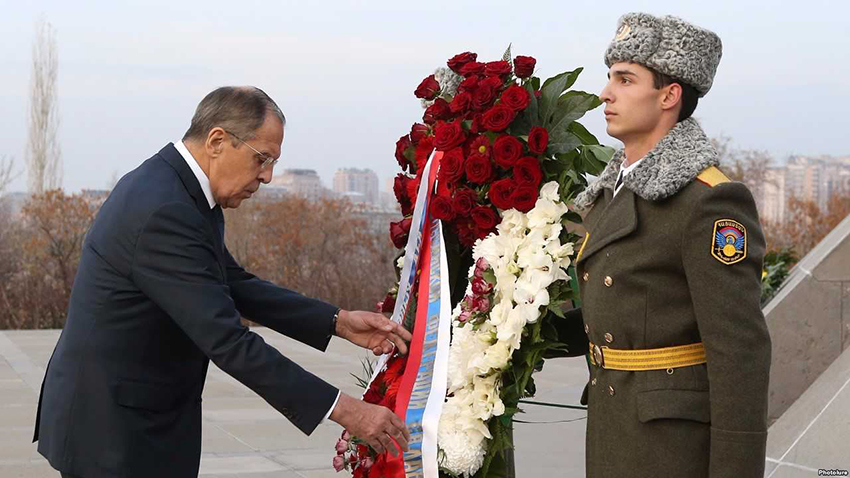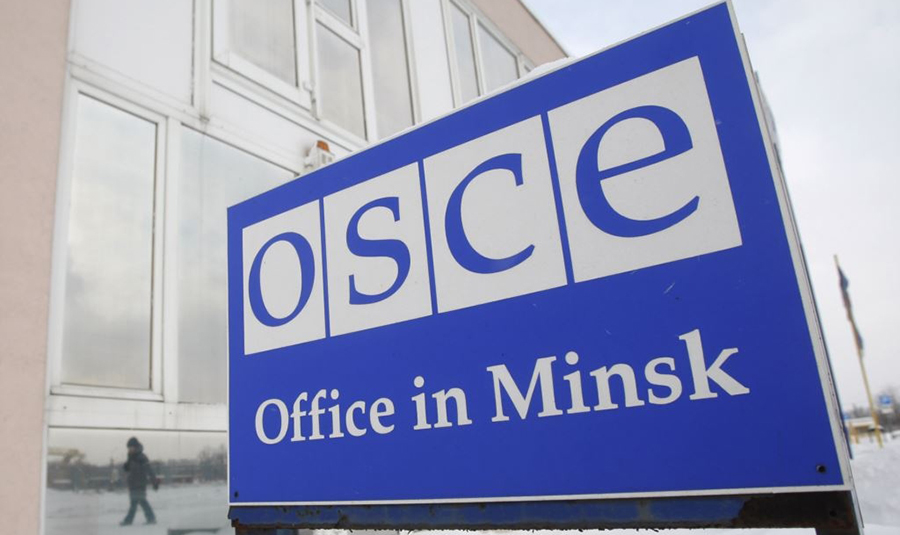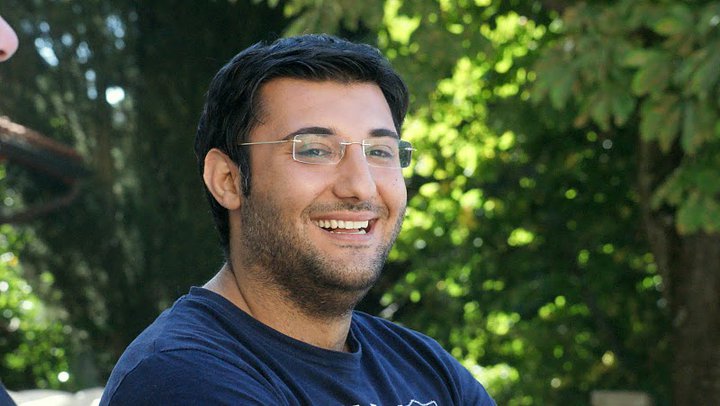YEREVAN (RFE/RL) — Russian Foreign Minister Sergei Lavrov arrived in the Armenian capital of Yerevan on Monday afternoon as part of his regional tour that included talks in Baku, Azerbaijan.
Lavrov’s two-day visit to Yerevan officially marks the 25th anniversary of the establishment of Russia’s diplomatic relations with the South Caucasus nation. In Yerevan the Russian foreign minister is expected to meet with President Serzh Sarkisian and Foreign Minister Edward Nalandian, with their talks likely to focus on long-standing efforts to settle the Armenian-Azerbaijani conflict over Nagorno-Karabakh.
Lavrov started his trip to Armenia with a visited to the Tsitsernakaberd Memorial where he laid a wreath for the Armenian Genocide victims and paid tribute to the memory of the martyrs with a moment of silence.
Lavrov discussed the Nagorno-Karabakh issue with Azerbaijani officials when he visited Baku on November 19-20. During his meeting with Azerbaijani President Ilham Aliyev on Sunday the top Russian diplomat reportedly reiterated Russia’s interest in helping “find a solution and ensure progress toward the settlement” of the Nagorno-Karabakh conflict.
Along with the United States and France Russia co-heads the Minsk Group of the Organization for Security and Cooperation in Europe (OSCE), which is the existing international mediation format pertaining to the conflict.
While in Baku, Lavrov stressed that in the Karabakh settlement issue Moscow has the same position as Washington and Paris and that the rather serious differences in the U.S-Russian relations have not affected the joint mediation efforts in the Armenian-Azerbaijani conflict.
“The co-chairs meet with the ministers, regularly visit the region. I hope that the meeting of the presidents [of Armenia and Azerbaijan] that took place last month will contribute to progress in the settlement of the conflict,” Lavrov said.
Speaking at a joint press conference with his Azerbaijani counterpart Elmar Mammadyarov following their talks, Lavrov said that a continued conflict around Nagorno-Karabakh is not in the interest of anyone. “It is necessary to deal with the resolution of the Karabakh conflict, especially that the main directions in which it is necessary to register progress have already been outlined,” Lavrov said. He also said that no enlargement of the OSCE Minsk Group format is on the cards. “All the states that could contribute to the resolution of the problem are represented in the Minsk Group,” he said.
The foreign ministers of Armenia and Azerbaijan met separately with the Russian, American and French co-chairs of the OSCE Minsk Group in Moscow last week after which the international mediators said that Nalbandian and Mammadyarov agreed to hold a meeting on the sidelines of an OSCE Ministerial Meeting in Vienna, Austria, next month.
Prior to his regional tour Lavrov told Russian state-run TASS news agency that while in Yerevan and Baku “we will try to understand at what stage our efforts on the Nagorno-Karabakh settlement are after the meeting of the presidents of Armenia and Azerbaijan in Geneva.”
During their talks in the Swiss city on October 16, Armenian President Sarkisian and his Azerbaijani counterpart Aliyev pledged to intensify the peace process and bolster the cease-fire regime in the region’s conflict zone.










